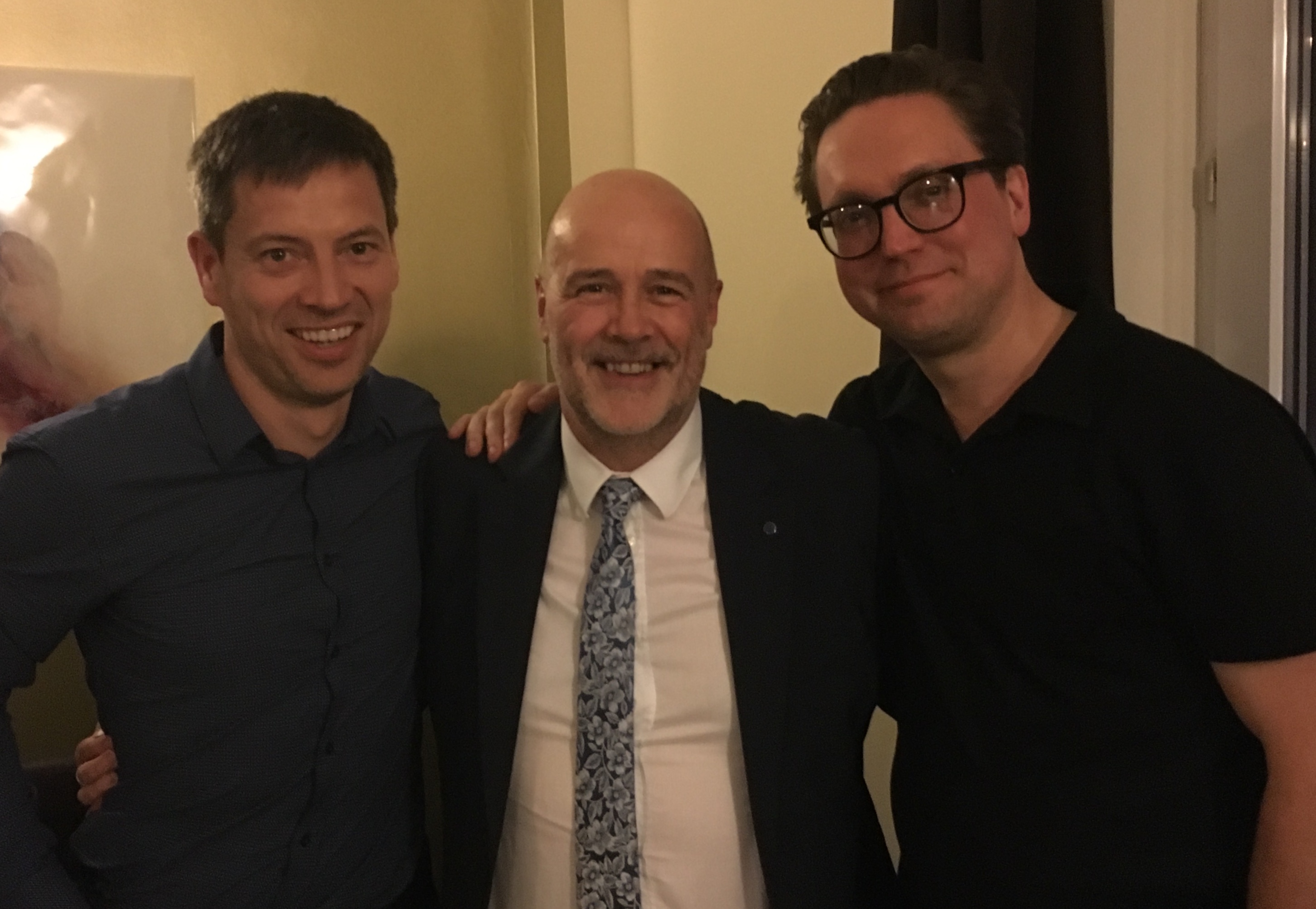Above: John with songwriters Jim Duguid (Speedway, Paul Nutini, Alex Clare) and Tom Gray (Gomez)
Copyright legislation in the European Union is badly in need of reform. Prevailing copyright legislation is woefully inadequate for modern commerce in the age of the internet. That is one of the few things that everyone, well almost everyone, in the European Parliament and the Commission can agree upon.
The debate over copyright reform is complex, but the current situation is serving the interests of very few other than those of the large internet platforms. This is not in any way a sustainable situation and change is clearly needed. I have received many hundreds of (fairly obviously) robotically generated emails on the changes embodied in Articles 11 and 13 of the proposed Copyright Directive legislation*. In my view that change must address two particular problems and must ensure that several key principles are protected:
It is right that artists and creators are rewarded for their work. This is both a principle and a practical problem with the way the internet has destroyed value in a number of industries. Recording artists in particular but also other creatives have been severely impacted by a ‘sharing economy’ which essentially rips-off their work. In this case the recording companies are also badly affected and the winners are the likes of YouTube. Of course there are also contradictions - recording artists benefit in terms of profile and exposure but ‘profile’ alone does not pay the bills. These concerns are shared by written word publishers and those in other creative fields, though it is also fair to say that I have also had representations taking a different view.

Above: John with Irish singer/songwriter Imelda May at the European Parliament.
Journalism and a free press has to be paid for. Professional journalism, on which a free press depends, is not ‘free’. The decline of newspaper circulation, the changes facing broadcasting organisations and the emergence of news aggregators and search have rendered unviable the business model on which pre-internet media was based. The contradiction is that more people than ever see newspapers in their on-line form, yet again it is the platforms and search organisations that benefit in terms of advertising revenue. If professional journalism is to survive in a sufficiently diverse form to feed a free press (with all its failings) then news organisations need to be able to benefit from their readership. Article 11 would appear to help this situation somewhat.
Free academic enquiry is essential. Academic enquiry necessarily involves the citation of other works. I would be unhappy with any proposition that constrained the ability of academics and researchers to publish and share works and references. Changes have gone some way to assure me that the proposals would not threaten this area, however, their ‘over implementation’ conceivably could. I am concerned that we could exchange one inadequate situation for something even worse.
I have reservations about the notion of policing the internet through the application of algorithm and crude content recognition. Visual content recognition software is flawed and far from perfect, however, it will improve as all other software has done. I would also be unhappy with the notion of ‘link taxes’ applied indiscriminately.
These are the principles around which I will make a judgement, however, it is fair to say that there are a whole range of other issues that impinge upon the digital economy that cut across the debate on modernising copyright law. The interests of consumers are also important, looking after local cultures and languages have depended upon a localised broadcasting framework matter to many people. The current legislation cannot be reduced to a simple choice.
Within this debate there has been a great deal of exaggeration and hyperbole to no particular end. I have worked within the creative and software industries, I have been involved all my life with music and, in the design business, have had to take legal action to protect intellectual property and creative copyright. That experience inevitably colours my view. I do not share the view that the sky will fall if the current legislation is carried - but I do hope it can be improved during its passage through the institutions.
* It is very hard to see how anyone could believe that incessant spamming of my inbox with identical content from email addresses that are clearly not real will persuade me of their case, but no matter, people do what they do.



